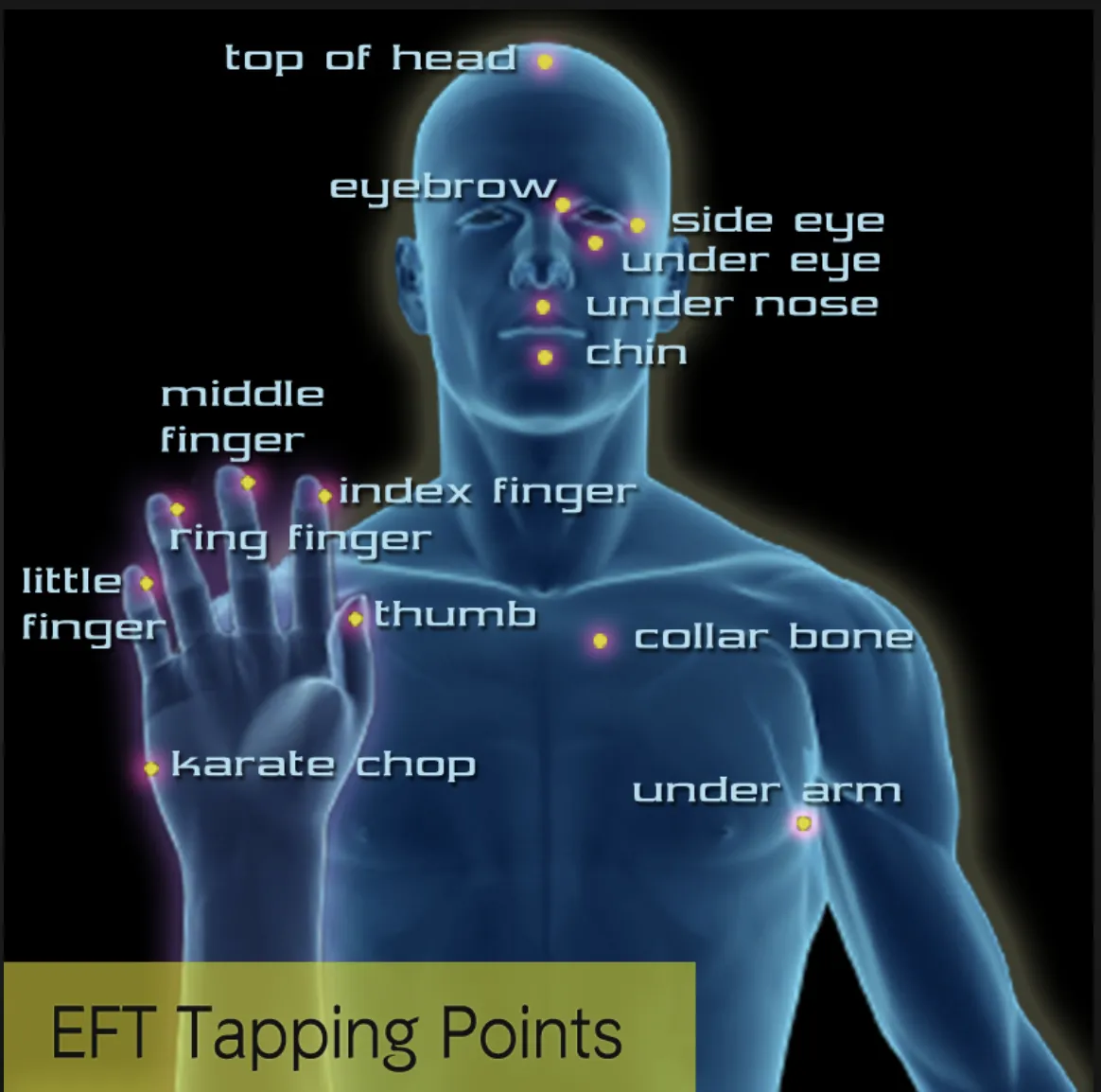EFT (Emotional Freedom Techniques)
FOR ANXIETY
Ease anxiety naturally with EFT tapping. Emotional Freedom Techniques calm the mind, reduce fear, and restore balance — gentle support for grief and daily life.
EFT for Anxiety
Intro:
Anxiety can creep in quietly or strike suddenly, leaving us feeling on edge, restless, or even panicked. For those grieving, anxiety often rises because the world feels uncertain and fragile. But anxiety isn’t limited to grief — it can affect anyone, in any season of life.
How EFT Helps:
EFT (Emotional Freedom Techniques) offers a gentle way to ease anxiety. By tapping on specific acupressure points while focusing on what we feel, EFT helps calm the body’s alarm system. Studies show that tapping reduces activity in the amygdala (the part of the brain linked to fear) and lowers cortisol, the stress hormone. This allows us to feel more grounded, safe, and steady.
A Helpful Resource:
EFT International and EFT Universe share inspiring case studies showing how tapping helps with different kinds of anxiety — from social anxiety to panic attacks.
EFT Helps Heal Extreme Anxiety and Fear Around Going to the Dentist
https://eftinternational.org/eft-extreme-dental-anxiety-and-fear/
Resolving Grief (Displaced as Fear) Helps Relieve Horse Riding Anxiety
https://eftinternational.org/eft-helps-relieve-horse-riding-anxiety/
The Science:
Researchers have found that EFT can reduce symptoms of anxiety significantly, sometimes after only a few sessions. Thought leaders such as Dr. Bruce Lipton and Dr. Joe Dispenza highlight how our thoughts and emotions shape our biology — EFT brings this understanding into practical daily use.
Closing Invitation:
You don’t have to live at the mercy of anxious thoughts. EFT provides a simple, empowering tool to bring calm back into your body and mind.
If anxiety is part of your journey — whether linked to grief, or everyday worries — get in touch here to explore how tapping can support you.
With warmth,
Joanne

FAQS
Do I need a practitoner?
Not at all — you can do EFT by yourself using the tapping points and some simple phrases. But if you’re working through something very deep or painful, a practitioner can guide you safely and help you go further.
What if I get emotional while tapping?
That’s actually a good sign — it means the emotion is moving and being released. If it feels overwhelming, just pause, take a breath, and keep tapping gently until you feel calmer.

How often should I do EFT?
As often as you like. Some people use it daily as part of their self-care, others only when something comes up. Even a few minutes can make a difference.

Can I EFT make things worse?
Sometimes feelings rise up before they ease. That can feel uncomfortable in the moment, but it usually settles quickly. If it ever feels too much, stop, breathe, drink some water, and return when you’re ready
